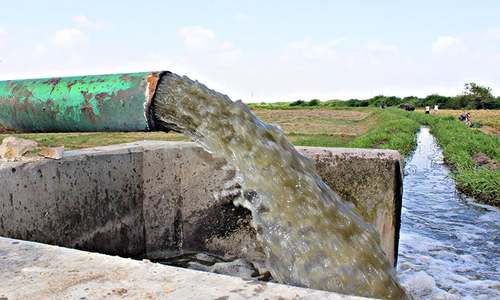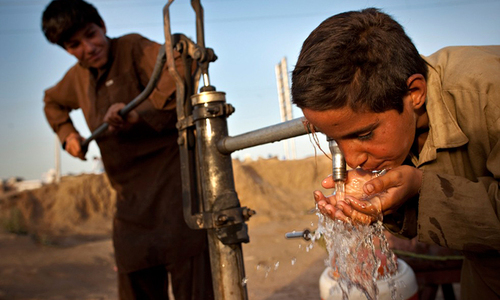While Pakistani agriculturalists have traditionally relied on one of the largest continuous irrigation systems in the world to water their crops, the country has turned to groundwater to keep up with surging demand which comes as a result of increasing urbanisation and a growing population.
With over 60 per cent of Pakistan's water pumped from natural underground reservoirs, and no limits on how many wells can be drilled and how much they can be drained, it becomes difficult for authorities to precisely monitor the underground water levels.
But things are changing with Nasa's Gravity Recovery and Climate Experiment (GRACE) satellites, which allow effective monitoring of the vital resource, leading to better management of the resource.
Water managers are using these satellites through partnership with engineers and hydrologists at the University of Washington in Seattle.
"Satellites up in space looking at how much water we have underground, in rivers or in the atmosphere are providing routine observations that can help policymakers and on-the-ground managers make informed decisions," says Faisal Hossain, associate professor of civil and environmental engineering at the University of Washington.
"From offering improved flood forecasting to indicating areas where groundwater resources are threatened, freely available satellite data can be an invaluable resource, particularly in developing countries."
The Pakistan Council of Research in Water Resources, after training at the University of Washington, began using GRACE satellite data in January to generate monthly updates on changes in groundwater storage in the Indus river basin.
The monthly reports allow researchers to track groundwater supplies and see where they are being depleted and recharged.
How it works
GRACE's twin satellites, which were launched in 2002, gauge variations in gravity caused by the changing mass of water, helping scientists track where water is, how it changes with time, and estimate changes in the amount of water available as well as in groundwater supplies.
"Using these satellites, we can indicate the areas that are most threatened by groundwater depletion. We can tell the farmers and water managers and help decision makers formulate better and more sustainable policies," says Naveed Iqbal, an assistant director and hydrogeologist at the Pakistan Council of Research in Water Resources.
Faisal Hossain says conventional monitoring ─ "sending people and sticking probes in the ground to measure water" ─ is time consuming and expensive.
Remoteness of terrain and a tenuous security situation limit the possibility of on-the-ground monitoring, he says.
While the satellite information offers lower spatial resolution in comparison with traditional monitoring efforts, it provides benefits in terms of cost of efficiency. For instance, water managers spent eight years building a monitoring network in the Indus river basin, but this network only provides readings twice a year.
Like all Nasa satellite data, GRACE data is freely available for download from Nasa data centres.
Hossain attributes the success of the project in part to the immersion of a Pakistani agency staff person in a long-term lab research residency at the University of Washington, saying the placement not only allowed him to "master the scientific concepts, but also to communicate to us the true hurdles that we are up against."
He emphasised the importance of buildings skills of in-country managers and user-friendly systems rather than sole focus on scientific research, data acquisition and technology.


















































